The long-term effect of screening and lifestyle counseling on changes in physical activity and diet: the Inter99 Study - a randomized controlled trial
- PMID: 25886540
- PMCID: PMC4352560
- DOI: 10.1186/s12966-015-0195-3
The long-term effect of screening and lifestyle counseling on changes in physical activity and diet: the Inter99 Study - a randomized controlled trial
Abstract
Background: Multi-factorial intervention studies have been found to be successful in the initiation of lifestyle changes. However, little is known about the longer-term maintenance of health behavior improvements. The purpose of this study was to investigate whether improvements in physical activity and dietary habits achieved in a population-based multi-factorial lifestyle intervention of five years duration were maintained five years after intervention activities have ended.
Methods: The study was a population-based randomized controlled trial, Inter99 (1999-2006), Copenhagen, Denmark. Over five years, all participants in the intervention group (n = 6,091) received individual lifestyle counseling; participants at high risk of ischemic heart disease - according to pre-specified criteria - were also offered group-based counseling. The control group (n = 3,324) was followed by questionnaires. Both groups were followed one, three, five, and ten years after baseline. Changes in physical activity and dietary habits (intake of vegetables, fruit, fish, and saturated fat) during and after the intervention were investigated using random-coefficient models.
Results: Five years after the intervention, women in the intervention group reported greater improvements in the intake of fruit (M Δ = 90.2 g/week, p = 0.041) and less intake of saturated fat (OR = 0.30, 95% CI: 0.17-0.54) than the control group. Men in the intervention group reported greater improvements in physical activity (M Δ = 19.6 min/week, p = 0.003) and less intake of saturated fat (OR = 0.31, 95% CI: 0.17-0.56) than the control group. Improvements in the intake of vegetables and fish achieved during the intervention were not maintained in the longer-term.
Conclusions: Screening and lifestyle counseling had sustained effects on physical activity and dietary habits five years after its discontinuation. The patterns of long-term changes in lifestyle differed across behaviors and between men and women.
Trial registration: ClinicalTrials.gov ( NCT00289237 ).
Figures
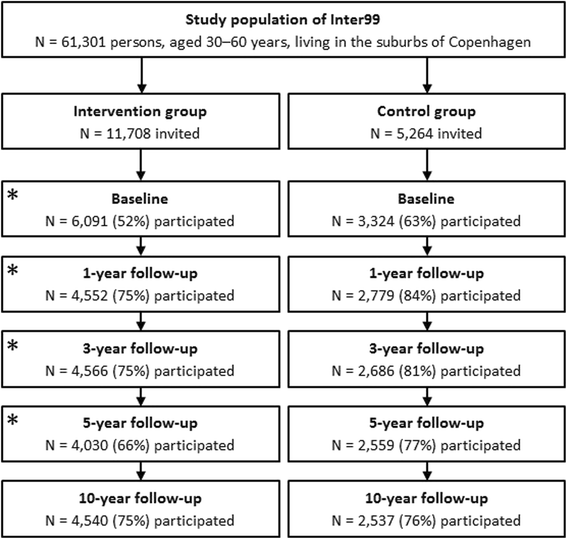
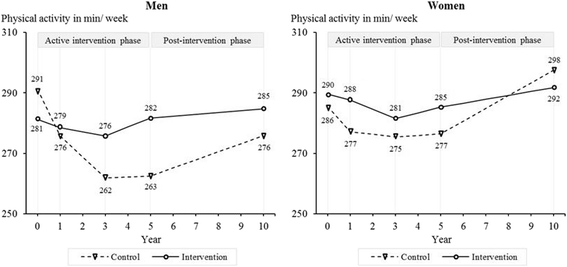
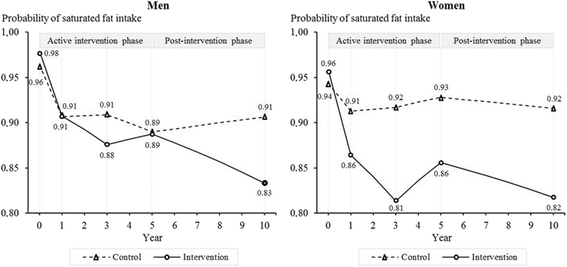
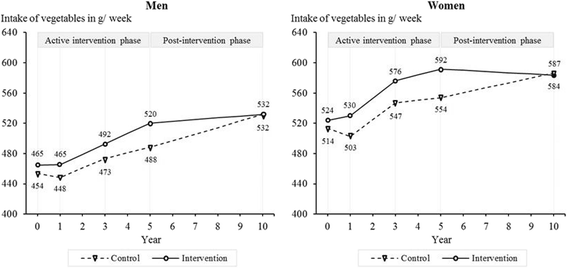
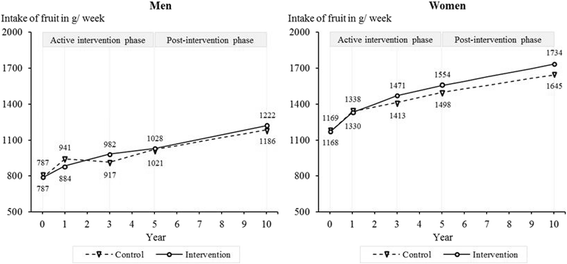
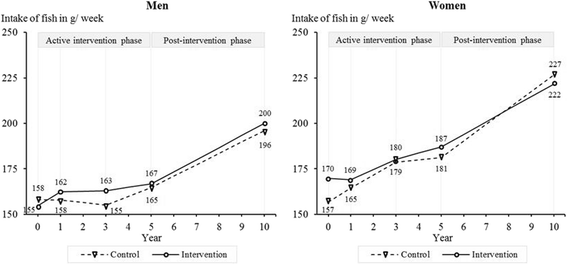
References
-
- World Health Organization: The European health report 2012: chartering the way to well-being. World Health Organization; 2012.
-
- Lim SS, Vos T, Flaxman AD, Danaei G, Shibuya K, Adair-Rohani H, et al. A comparative risk assessment of burden of disease and injury attributable to 67 risk factors and risk factor clusters in 21 regions, 1990-2010: a systematic analysis for the Global Burden of Disease Study 2010. Lancet. 2012;380:2224–60. doi: 10.1016/S0140-6736(12)61766-8. - DOI - PMC - PubMed
-
- Marcus BH, Williams DM, Dubbert PM, Sallis JF, King AC, Yancey AK, et al. Physical activity intervention studies: What we know and what we need to know: A scientific statement from the American Heart Association on Nutrition, Physical Activity, and Metabolism (Subcommittee on Physical Activity); Council on Cardiovascular Disease in the Young; and the Interdisciplinary Working Group on Quality of Care and Outcome Research. Circulation. 2006;114:2739–52. doi: 10.1161/CIRCULATIONAHA.106.179683. - DOI - PubMed
Publication types
MeSH terms
Associated data
LinkOut - more resources
Full Text Sources
Other Literature Sources
Medical

